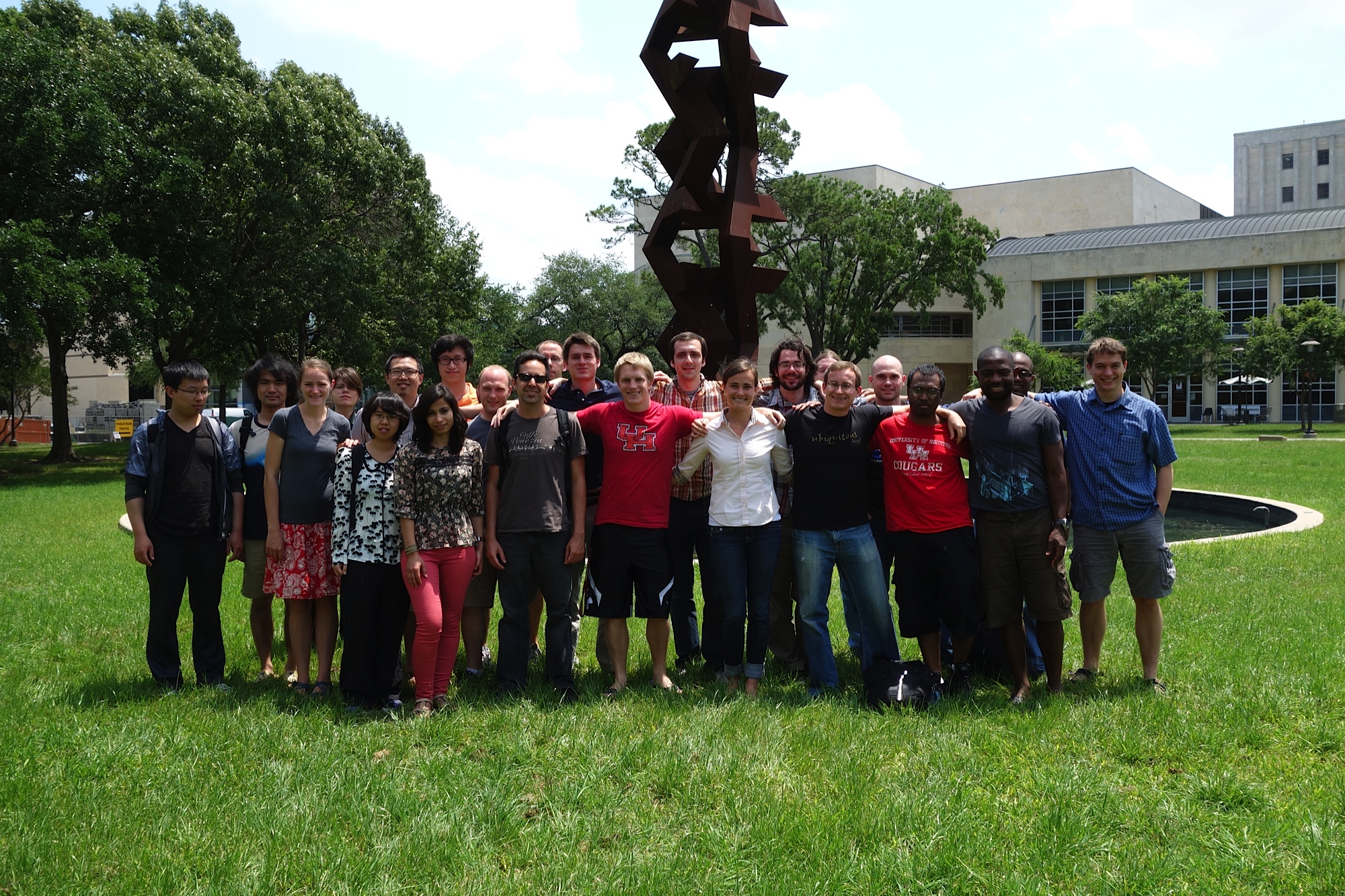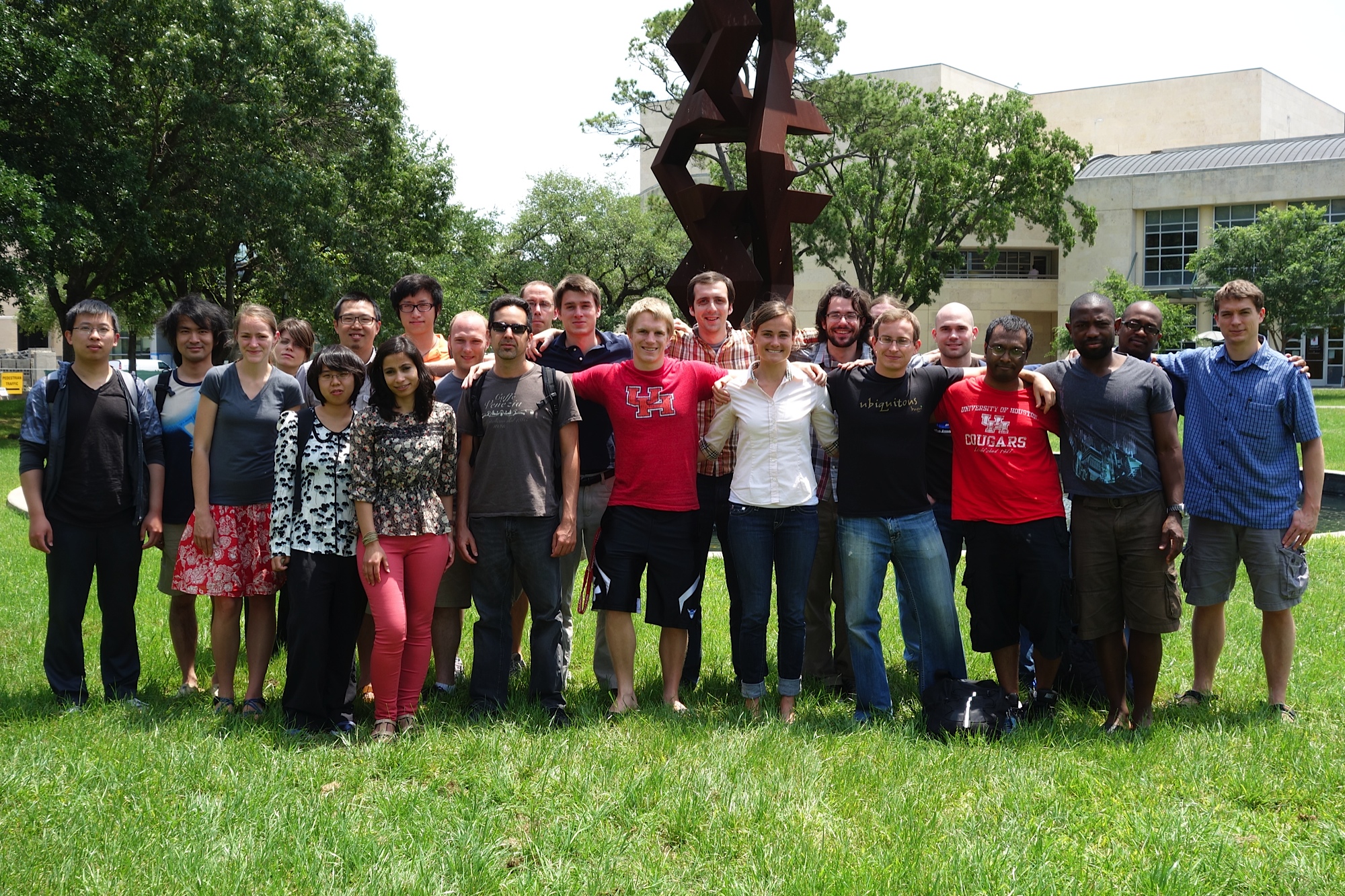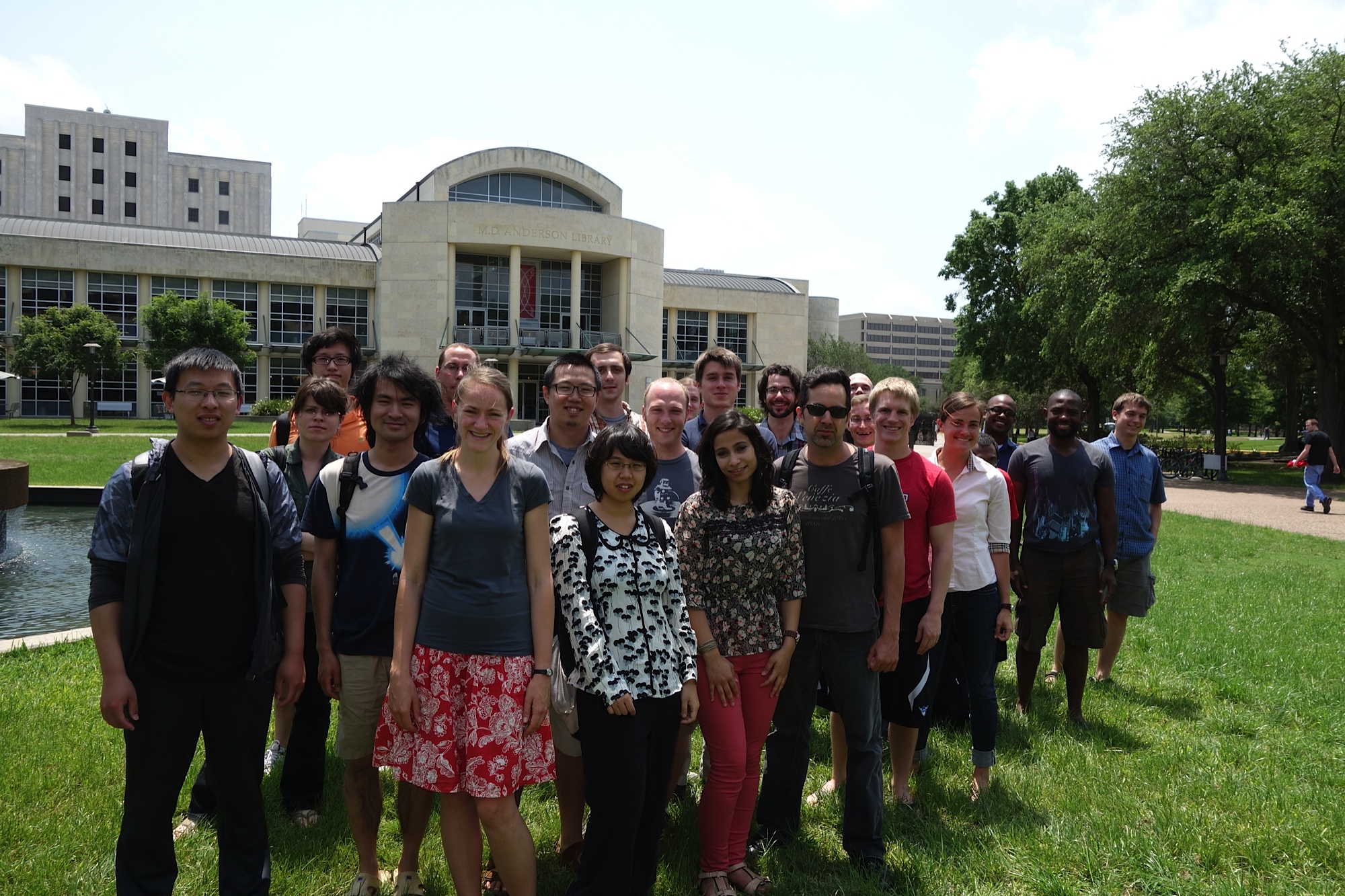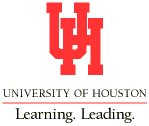Pictures from
the school: (Original announcement is
below)



The
Department
of Mathematics at
University of
Houston will host a Summer School on
Dynamical Systems from May 13-21, 2013.
The school is designed for advanced
undergraduate and early graduate students, and
will use short lecture courses, tutorial and
discussion sessions, and student projects to
introduce some of the fundamental concepts of
dynamical systems in a manner that is accessible
to students who do not necessarily have prior
experience with this area of mathematics.
Travel
reimbursements and lodging will be provided
for all non-UH students. All students
will receive a stipend to cover food and other
local expenses. The application deadline has
passed and we have contacted all accepted
participants.
All lectures will be given by members of the
research group in
Dynamical Systems and Ergodic Theory at
UH. A brief description is below, together
with a tentative schedule. The
mini-courses will each consist of a series of
90-minute lectures; tutorial and discussion
sessions will be held in conjunction with the
lectures, and student projects will be
incorporated into the program.
List of topics
The following plan of lectures is
tentative and is subject to change as the
school goes on, based on the interest and
background of the audience, and the progress
made in the initial lectures. The
topics covered in lectures may vary slightly
from those listed here. See below for
the schedule of when the lectures will be
given.
- Background
(BG). These lectures will
review the fundamental concepts from
dynamical systems that are needed for the
other courses at the school.
- Review of random variables, modes of
convergence, and classical results from
probability theory for IID processes,
such as the law of large numbers and the
central limit theorem.
Interpretation of observations of a
dynamical system as a random process,
using an invariant measure.
- First steps beyond the IID case:
Markov chains and stationary
probabilities; the Perron-Frobenius
theorem. Interpretation of the
transition matrix as a transfer
operator.
- Symbolic coding of dynamical
systems. Markov partitions for
uniformly hyperbolic systems.
Connections to statistical
mechanics. Abundance of invariant
measures and need to select a
distinguished measure. Absolutely
continuous invariant measures for
certain interval maps.
- Tools from functional analysis.
Commonly used function spaces,
compactness results: Arzela-Ascoli,
Helly. The need to work with
multiple norms. Bounded variation
functions on the interval.
- Selecting an appropriate "physical"
measure for higher-dimensional maps; SRB
measure. Entropy, topological
pressure, and equilibrium states.
- Markov chains with countably many
states. Connection to
non-uniformly hyperbolic systems via
Young towers.
- Spectral theory (ST). One
tool for proving statistical properties of
dynamical systems is to understand the
spectrum of the transfer operator.
These lectures will explore this approach in
various settings.
- Spectral methods for Markov chains,
definition of transfer operator.
Transition matrix as transfer operator
acting on locally constant
functions. Spectral gap for action
on Holder continuous functions, and
exponential decay of correlations as a
corollary.
- Abstract results in spectral approach
to dynamics; use of spectral gap to
deduce exponential decay of correlations
via results of Ionescu Tulcea and
Marinescu.
- Existence of absolutely continuous
invariant probability measures for
piecewise expanding interval maps using
Lasota-Yorke inequality and action of
the transfer operator on the space of
bounded variation functions.
- Exponential decay of correlations and
central limit theorem for interval maps.
- Convex cones (CC). Spectral
methods do not give constructive estimates
on the rate of decay of correlations; such
estimates can be obtained using convex cones
and the Hilbert (projective) metric.
- Definition of Hilbert metric, use of
convex cones to obtain an explicit
estimate on the rate of convergence in
the Perron-Frobenius theorem.
- Construction of convex cones for
piecewise expanding interval maps, and
deduction of an explicit estimate for
rate of decay of correlations following
work of Liverani.
- Probabilistic methods (PM).
Two lectures on various probabilistic
methods applied to dynamical systems, such
as coupling techniques and
martingales. The first lecture will
focus on finite-state Markov chains (and
hence uniformly hyperbolic systems); the
second will give applications to
non-uniformly hyperbolic systems via
countable-state Markov chains and Young
towers.
Schedule
Details of the schedule are subject to
change. Registration will take place on
the 6th floor of PGH building, all lectures
will take place in AH 302 (next door).
Time slots labeled "Proj" are open for work on
student projects, further discussion of
lecture topics, extra tutorials, etc.
The schedule for the second week will be
determined during the school.
|
Mon
|
|
Tue
|
Wed
|
Thu
|
Fri
|
9-10
|
Register
|
9-10:30
|
BG 4
|
ST 2
|
ST 3
|
BG 6
|
10-11:30
|
BG 1
|
11-12:30
|
Proj
|
PM 1
|
BG 5
|
ST 4
|
1-2:30
|
BG 2
|
2-3:30
|
ST 1
|
Proj
|
CC 2
|
Proj
|
3-4:30
|
BG 3
|
4-5:30
|
CC 1
|
Free
|
Proj
|
PM 2
|
References and external
material
The book "Zeta Functions and the Periodic
Orbit Structure of Hyperbolic Dynamics", by
William Parry and Mark Pollicott, will be
referenced in some of the lectures. An
online copy of the book can be found here.

